Spes contra spem, “believe against all hope”. This is the Christian identity card posed by St Paul who, following in the footsteps of Abraham, was certain that “the thread of hope”, even in the most difficult of times, “runs the course of salvation history and, moreover, is a source of joy”. On Thursday morning, 17 March, during Mass at Santa Marta, Pope Francis put forth this call to never lose hope, to be certain that hope never disappoints.
“Today’s liturgy”, he began, “prepares us for the Easter celebrations with a reflection on the virtue of hope”, the humble virtue so often cast aside. In the passage from the Gospel of John (8:51-59), “Jesus speaks about Abraham and says to the doctors of the law: ‘Your father Abraham rejoiced that he was to see my day’; he saw it and was glad’”. Abraham, the Pope recalled, was “the man who left his land without knowing where he was going. He left in obedience, in faithfulness”. Abraham was also “the man who believed in the Word of God and was justified in that faith”; but he was also “the man who was tempted along this path of hope when, both he and his wife, smiled as God told them they would have a son. But he believed”.
Referring to the First Reading, taken from the Book of Genesis (17:3-9), the Pontiff highlighted “this covenant: I will give you land, you will be the father of generations”. Thus, “Abraham believed and this thread of hope runs the course of salvation history. Moreover, it is a source of joy”.
Today, the Pope continued, “the Church speaks to us about the joy of hope”. Indeed, “in the first prayer of the Mass”, he recalled, “we asked God for the grace to preserve the hope of the Church, that it never fail”. St Paul too, “speaking of our father Abraham, tells us to ‘believe against all hope’”. Thus, Francis stated, “when there is no human hope, there is the virtue which leads you forward”. It is “humble and simple, but it gives you joy, sometimes great joy, sometimes simply peace”. However, we can always be certain that this “hope does not disappoint”.
“Abraham’s joy grows in history”, said the Pontiff, who repeated the words of the Lord from the day’s Gospel Reading: “Your father Abraham rejoiced that he was to see my day”. It’s true, the Pope acknowledged, that hope “is sometimes hidden, it is unseen”, while “sometimes it is openly manifest”. Thus, upon Mary’s arrival at her cousin’s house, Elizabeth says to her: “as soon as I heard your voice, the babe in my womb leaped for joy!”. In this meeting there is “the joy of the presence of God who walks with his people”, and “when there is joy, there is peace. This is the virtue of hope: from joy to peace, which never disappoints”.
This is the reason that the People of God, even “in times of slavery, at times in which they were sojourners, in a foreign land”, they always had “that sense of certainty that the Prophets cultivated: ‘The Lord will save you’”. That “thread of hope”, the Pope explained, “begins here with Abraham, God speaks with Abraham, and it ‘ends’ in this Gospel passage where the same God who spoke with Abraham says: ‘I am he who spoke; before Abraham was, I am; I am he who called Abraham; I am he who began this journey of salvation’”.
He is the God, Francis added, “who accompanies us, he is also the God who suffers, who suffers as his people have suffered, he suffers on the Cross, but he is true to his word”.
Precisely in this regard the Pope recommended an essential examination of conscience regarding faith, love and hope, asking several direct questions: “Do you have faith? Yes father, I have faith: I believe in the Father, Son, and Holy Spirit, and in the sacraments. Very well, do you have love? Yes, but not very much, I try not to quarrel, to help the needy, to do something good in life”. These are the easy answers that we often give, Francis noted. But, he added, “when you ask yourself if you have hope, if you have the joy of hope”, the answer is: “Father, I don’t understand, explain”.
Hope, the Pontiff remarked, is “the humble virtue, the virtue that courses beneath the water of life, but which supports us so as not to drown in the many difficulties, so as not to lose the desire to find God, to find that marvellous face that we will all see one day”. Today, Pope Francis said, “is a fine day to reflect on this: the same God who called Abraham and made him come down from his land without knowing where he should go, is the same God who goes to the Cross in order to fulfil the promise that he made. He is”, the Pope continued, “the same God who in the fullness of time will make that promise a reality for all of us”. What “joins that first instance to this last moment is the thread of hope”. Therefore, what “joins my Christian life to our Christian life, from one moment to another, in order to always go forward — sinners, but forward — is hope”. Yet, “what gives us peace in the dark moments, in life’s darkest moments”, is always “hope”.
Hope “does not disappoint: it is always there, silent, humble, but strong”, Francis concluded. The he repeated once again “today’s prayer, at the beginning of Mass: ‘Our hope is in your hands, O Lord, preserve our hope”.


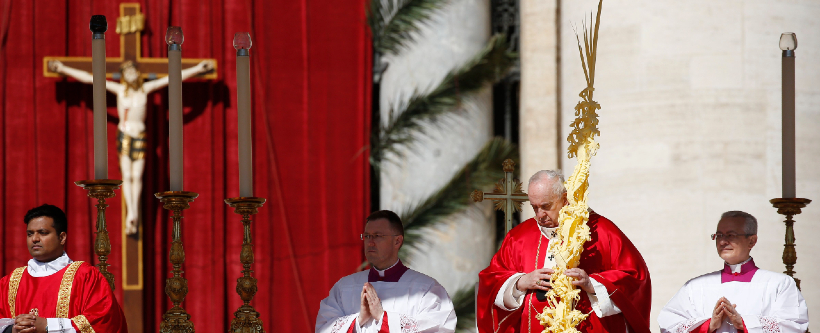
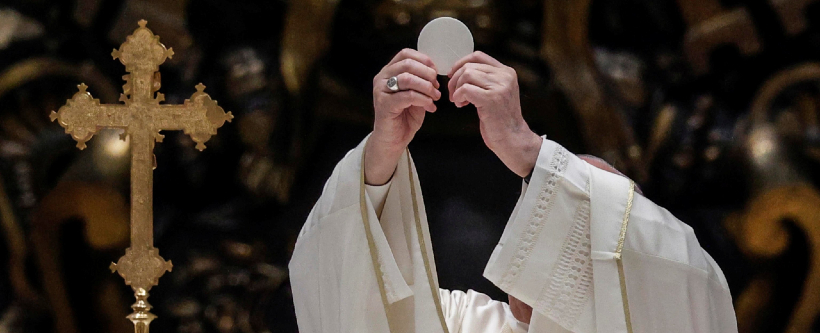
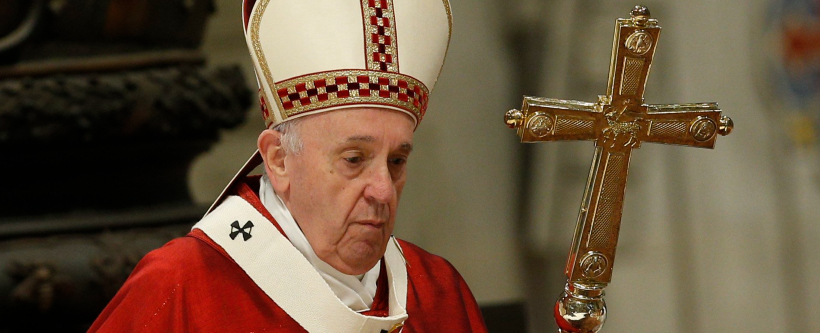
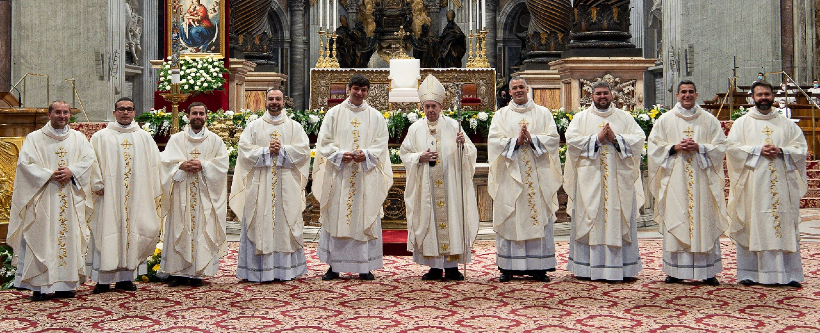
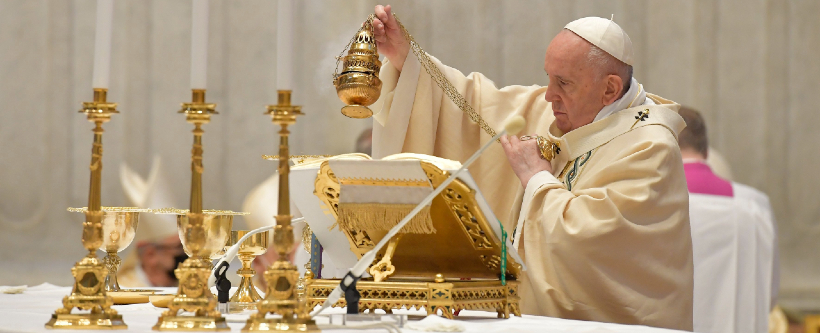
Facebook Comments